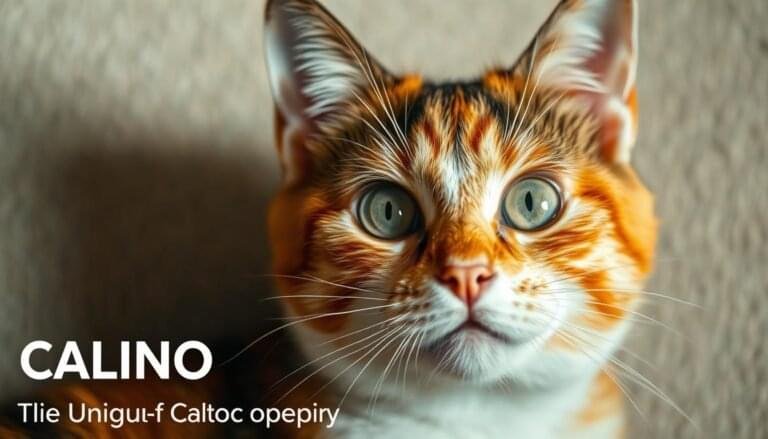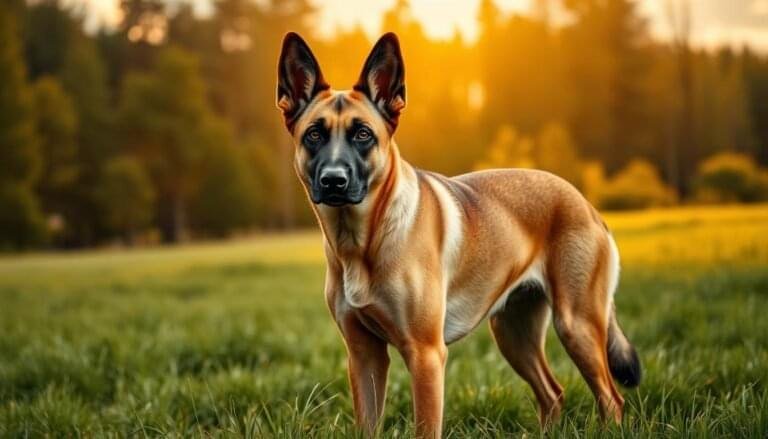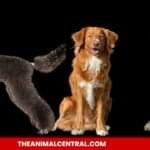Can a Dog Die from Eating Cat Food?:Did you know that dogs have been known to consume around 4,500 tons of cat food each year in the United States alone? While it may seem harmless, the safety of a dog eating cat food depends on various factors, including the dog’s individual health needs.
Dogs are naturally attracted to cat food and may indulge in it if given the chance. However, cats have different nutritional requirements than dogs, as they are obligate carnivores and need more protein and fat. Feeding cat food to a dog can be beneficial for some dogs, such as those with weight loss or poor appetite, but it can be harmful to dogs with sensitive stomachs, kidney or liver disease, or those prone to pancreatitis.
In this article, I will delve into the differences between dog food and cat food, the potential risks and benefits of feeding cat food to dogs, and when it may be safe or harmful for dogs to consume cat food. Let’s explore the topic in more detail and gain valuable insights from veterinary professionals.
Key Takeaways:
- Feeding cat food to a dog can have different effects depending on their individual health needs.
- Cats have different nutritional requirements than dogs, as they are obligate carnivores.
- Cat food may be beneficial for some dogs but can be harmful to others, especially those with sensitive stomachs, kidney or liver disease, or a predisposition to pancreatitis.
- Consulting with a veterinarian is crucial to determine if feeding cat food to a dog is appropriate for their specific health needs.
- Regular consumption of cat food by dogs can lead to nutritional deficiencies, organ damage, inflammation, and other health issues.
The Difference Between Dog Food and Cat Food
When it comes to the dietary needs of dogs and cats, there are significant differences to consider. Dogs are omnivores, meaning they can consume both plant-based and animal-based ingredients. They have a more varied diet and can thrive on a balanced combination of proteins, fats, and carbohydrates.
Cats, on the other hand, are obligate carnivores, which means they require a higher amount of protein and fat in their diet. They have specific nutritional needs that can only be met by consuming animal-based ingredients. Commercial cat foods are specially formulated to provide these specific nutrients, including essential amino acids like taurine.
Unlike dogs, cats cannot synthesize taurine in their bodies and must obtain it from their diet. This nutrient is crucial for their overall health and well-being.
Feeding dog food to cats would be nutritionally deficient and can lead to various health problems due to the lack of essential nutrients. However, the story is different when it comes to feeding dog food to dogs. While cat food is not ideal for dogs as a primary diet due to the different nutritional composition, some dog foods may be safe and beneficial for certain dogs.
Important Differences between Dog Food and Cat Food:
- Dietary Needs: Cats require higher levels of protein and fat, while dogs have a more balanced nutritional profile.
- Essential Nutrients: Cat food contains specific nutrients like taurine that are crucial for feline health.
- Ingredient Composition: Dog food often includes a wider variety of ingredients, including plant-based sources, while cat food is primarily meat-based.
It’s essential to understand these differences to ensure that both dogs and cats receive the proper nutrition they need to stay healthy. Consult with a veterinarian to determine the best diet for your pet and address any concerns or questions you may have.
Is It Safe for a Dog to Eat Cat Food?
In general, it is not necessarily “bad” for a dog to eat cat food, but it can depend on the individual dog’s health needs. For some dogs, eating cat food occasionally or as a treat may not cause any harm. However, certain dogs may experience negative consequences when consuming cat food, especially if they have sensitive stomachs, kidney or liver disease, or a predisposition to pancreatitis. Such dogs may suffer from gastrointestinal upset, vomiting, diarrhea, abdominal pain, and other health issues. Therefore, it is crucial to monitor your dog for symptoms of cat food poisoning and seek veterinary care if necessary.
Symptoms of Cat Food Poisoning in Dogs:
- Gastrointestinal discomfort
- Vomiting
- Diarrhea
- Abdominal pain
If your dog exhibits any of these symptoms after consuming cat food, it is important to consult with a veterinarian. They can provide necessary guidance and recommend appropriate treatment options. Remember, every dog is unique, and their health needs vary. Prioritizing your dog’s nutritional requirements and seeking professional advice are essential for maintaining their overall well-being.
| What Happens If a Dog Eats Cat Food? | Symptoms of Cat Food Poisoning in Dogs |
|---|---|
| Dog may experience gastrointestinal upset | Gastrointestinal discomfort |
| Vomiting and diarrhea | Vomiting |
| Abdominal pain and discomfort | Diarrhea |
| Potential health issues | Abdominal pain |
When Cat Food Is Safe for Dogs
While cat food is generally not recommended for dogs, there are certain situations where it can be considered safe and beneficial. It is important to understand that cat food is specifically formulated to meet the nutritional needs of cats, which differ from those of dogs. However, for dogs with certain health conditions or specific dietary requirements, cat food can provide a palatable and nutrient-balanced option.
If your dog is battling cancer, experiencing weight loss or muscle wasting, or has a poor appetite, cat food may be a viable alternative to regular dog food. The higher fat and protein content in cat food can help provide additional calories and nutrients, supporting your dog’s overall health and well-being. However, it is crucial to consult with your veterinarian before feeding your dog any amount of commercial cat food to ensure it is suitable for their specific needs.
Cat kibble can also be used as healthier and well-balanced treats or training rewards for dogs. Many cat food brands offer small-sized kibble options that can serve as a tasty and nutritious treat for your furry friend. Just be sure to limit the portion sizes and carefully monitor your dog’s overall dietary intake to maintain a well-balanced diet tailored to their specific requirements.
When Cat Food Is Harmful for Dogs
While cat food can be safe for some dogs, it can pose risks to others, especially those with specific health conditions. Feeding cat food to dogs with sensitive stomachs, kidney or liver disease, or a predisposition to pancreatitis can worsen their conditions and lead to various symptoms. Additionally, the excessive protein and fat content in cat food can contribute to weight gain and other health issues in dogs. To ensure the well-being of your dog, it’s important to take their individual health needs into consideration and avoid feeding them cat food if it could potentially make them sick.
Sensitive Stomachs and Gastrointestinal Upset
Dogs with sensitive stomachs may experience gastrointestinal upset after consuming cat food. The composition of cat food differs from that of dog food, and dogs with sensitive stomachs may struggle to digest the rich ingredients found in cat food. This can result in symptoms such as vomiting, diarrhea, and abdominal pain. It’s essential to monitor your dog for any signs of discomfort or illness after they consume cat food and consult with a veterinarian if necessary.
Kidney or Liver Disease and Exacerbated Health Conditions
Dogs with kidney or liver disease already have compromised organ function and require a specific diet to manage their conditions. Feeding them cat food, which is high in protein and may not be suitable for their needs, can further burden their kidneys or liver and worsen their health. It’s crucial to consult with a veterinarian to determine an appropriate diet for dogs with kidney or liver disease and avoid feeding them cat food.
Pancreatitis and Increased Risk
Canine pancreatitis is a condition characterized by inflammation of the pancreas and can be exacerbated by consuming food that is high in fat. Cats require more fat in their diet than dogs, and cat food may contain levels of fat that could trigger pancreatitis in dogs prone to this condition. To minimize the risk of pancreatitis, it’s best to avoid feeding cat food to dogs with a predisposition to this disease.
In summary, while cat food may be safe for certain dogs, it can pose health risks to others, especially those with sensitive stomachs, kidney or liver disease, or a predisposition to pancreatitis. Feeding cat food to these dogs can worsen their conditions and lead to gastrointestinal upset, abdominal pain, and other symptoms. It’s crucial to prioritize your dog’s health needs and consult with a veterinarian to determine an appropriate diet and ensure their overall well-being.
Ask Your Vet About Your Dog’s Nutritional Needs
Feeding cat food to a dog requires careful consideration of their specific nutritional needs and health conditions. It is highly recommended to consult with a veterinarian or veterinary nutritionist to determine the safety and appropriateness of feeding cat food to your dog, even in small amounts. They can provide expert guidance on the ideal diet for your dog’s health and suggest alternative options if cat food is not appropriate.
Prioritizing your dog’s nutritional needs is crucial for their overall well-being. Veterinarians have in-depth knowledge of canine nutrition and can help you make informed decisions regarding your dog’s diet. By consulting with a professional, you can ensure that your dog receives a balanced and suitable diet that meets their specific health requirements.
Here are some key reasons why seeking professional advice is essential:
- Veterinarians can assess your dog’s current health condition and determine if cat food could potentially affect their well-being.
- They have access to specialized knowledge and resources to recommend alternative options that meet your dog’s nutritional needs while addressing any specific health concerns they may have.
- Professional guidance can help you avoid potential risks and adverse reactions that may occur due to the inappropriate feeding of cat food to your dog.
Remember, each dog is unique, and their dietary requirements can vary based on factors such as age, breed, size, and overall health. Consulting with a veterinarian ensures that you receive tailored advice specific to your dog, allowing you to make well-informed decisions regarding their nutrition.
Why Consult a Veterinarian?
Veterinarians have extensive knowledge of animal nutrition and can provide you with evidence-based recommendations regarding your dog’s diet. With their expertise, they can assess your dog’s individual needs, taking into account any pre-existing health conditions or sensitivities.
They may conduct a thorough evaluation, considering factors such as:
- Your dog’s age
- Your dog’s breed
- Any underlying health conditions, such as kidney or liver disease
- Your dog’s activity level and overall lifestyle
- Current body condition and weight
Based on this comprehensive assessment, veterinarians can provide personalized recommendations tailored to your dog’s unique requirements and help you navigate any potential challenges or issues related to feeding cat food.
Recommended Steps to Consult Your Veterinarian
When seeking advice from a veterinarian regarding your dog’s diet and the potential use of cat food, consider following these steps:
- Schedule an appointment with your regular veterinarian or a veterinary nutritionist.
- Provide a detailed history of your dog’s overall health, including any previous or existing medical conditions.
- Discuss your concerns and questions about cat food and whether it may be suitable for your dog.
- Follow the recommendations provided by your veterinarian regarding your dog’s nutrition. They may suggest alternative diets or specific commercial dog foods that meet your dog’s nutritional needs.
- Stay in regular communication with your veterinarian to monitor your dog’s health and make any necessary adjustments to their diet.
Gastrointestinal Upset from Cat Food
Dogs with sensitive stomachs may experience gastrointestinal upset after eating cat food. The composition of cat food is rich and different from what dogs typically consume, which can make it too heavy for some dogs to digest properly.
This can result in symptoms such as:
- Vomiting
- Diarrhea
- Stomach pain
These symptoms can indicate that the cat food is not suitable for the dog’s digestive system and may cause discomfort and distress. In some cases, cat food may also be contaminated with bacteria, leading to food poisoning symptoms in dogs.
It is important to keep cat food out of a dog’s reach, especially for dogs with sensitive stomachs, and monitor them closely for any signs of gastrointestinal discomfort or illness after consuming cat food.
Inflammation and Organ Damage
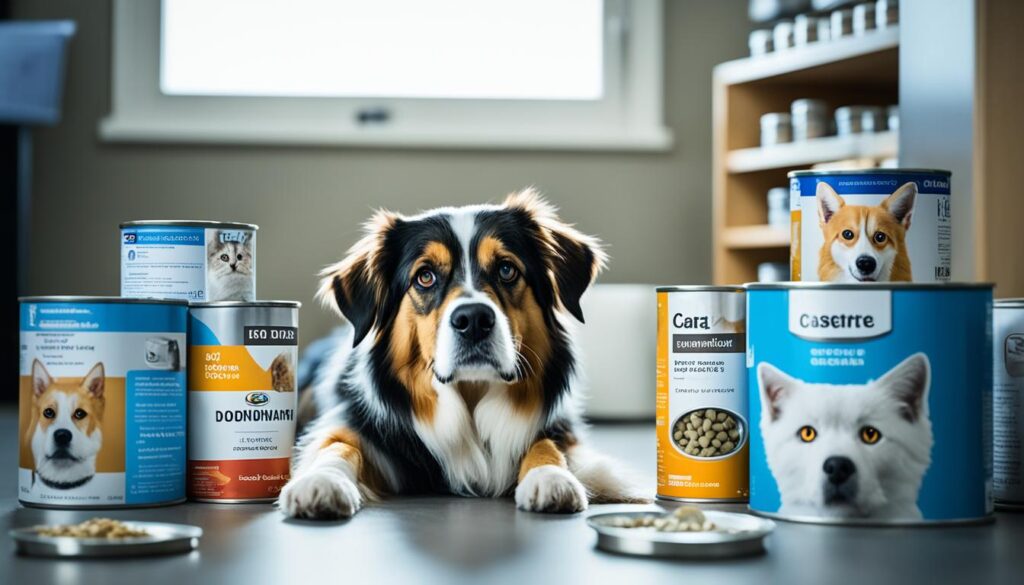
Dogs that consume cat food regularly may be at risk of inflammation, organ damage, and various health issues. When dogs regularly consume cat food, it can lead to:
Pancreatic Inflammation
The high protein and fat content in cat food can strain a dog’s pancreas, leading to inflammation. This can manifest as pancreatitis, a painful condition that causes digestive issues and discomfort in dogs. Dogs with a predisposition to pancreatitis should avoid cat food to prevent further inflammation.
Liver Damage
Dogs with liver disease or compromised liver function need to consume moderate amounts of protein to avoid further straining their liver. The excessive protein content in cat food can burden the liver and exacerbate existing liver conditions, leading to liver damage and impaired organ function.
Obesity
Cat food is typically higher in calories than dog food, making it more likely for dogs to gain excess weight and develop obesity. Obesity can contribute to a range of health issues in dogs, including joint problems, diabetes, heart disease, and a reduced lifespan.
To prevent inflammation, organ damage, and obesity, it’s essential to prioritize a dog’s specific health needs when it comes to their diet. Feeding them cat food can have severe consequences for dogs with compromised organ function, such as kidney or liver disease. Consult with a veterinarian for guidance on an appropriate and balanced diet tailored to your dog’s specific nutritional requirements.
| Health Issues | Consequences of Consuming Cat Food |
|---|---|
| Pancreatic Inflammation | Increases the risk of pancreatitis |
| Liver Damage | Strains the liver, worsens liver disease |
| Obesity | Contributes to weight gain and associated health problems |
Feeding a dog a balanced and appropriate diet is crucial for their overall health and well-being. Avoiding cat food and focusing on dog-specific nutrition can help prevent inflammation, organ damage, and related health issues.
Abdominal Pain and Intestinal Discomfort
Dogs that eat cat food may experience abdominal pain, intestinal discomfort, and upset stomachs. This can result in symptoms such as retching, vomiting, decreased appetite, and even refusal to eat. These symptoms can indicate that the cat food is too heavy or the nutrient composition is not suitable for the dog’s digestive system. If a dog exhibits these symptoms after consuming cat food, it’s important to seek veterinary care to address their discomfort and prevent further complications.
Feeding a dog cat food that is not suitable for their digestion can lead to various consequences. The dog’s digestive system may struggle to process the heavy composition of cat food, resulting in abdominal pain. The dog may also experience discomfort or upset stomach, leading to symptoms such as retching, vomiting, decreased appetite, and even refusal to eat.
If your dog displays any of these symptoms after consuming cat food, it’s crucial to seek veterinary care promptly.
A veterinarian will be able to evaluate your dog’s condition, determine the cause of their discomfort, and provide appropriate treatment. They may recommend symptomatic relief measures such as antacids or anti-nausea medications to alleviate the abdominal pain and intestinal discomfort. Additionally, they can offer dietary recommendations to ensure your dog’s nutritional needs are met and help prevent any further complications arising from the consumption of cat food.
Remember, it’s always better to consult a professional for the well-being of your furry friend.
If you suspect your dog may have ingested cat food or is experiencing any symptoms of cat food poisoning, do not delay seeking veterinary care. Early intervention is key to managing any potential health issues and ensuring your dog’s speedy recovery.
| Symptoms of Cat Food Poisoning in Dogs | Consequences of Dog Eating Cat Food |
|---|---|
|
|
Table: Symptoms of Cat Food Poisoning in Dogs and Consequences of Dog Eating Cat Food.
Nutritional Deficiencies from Cat Food
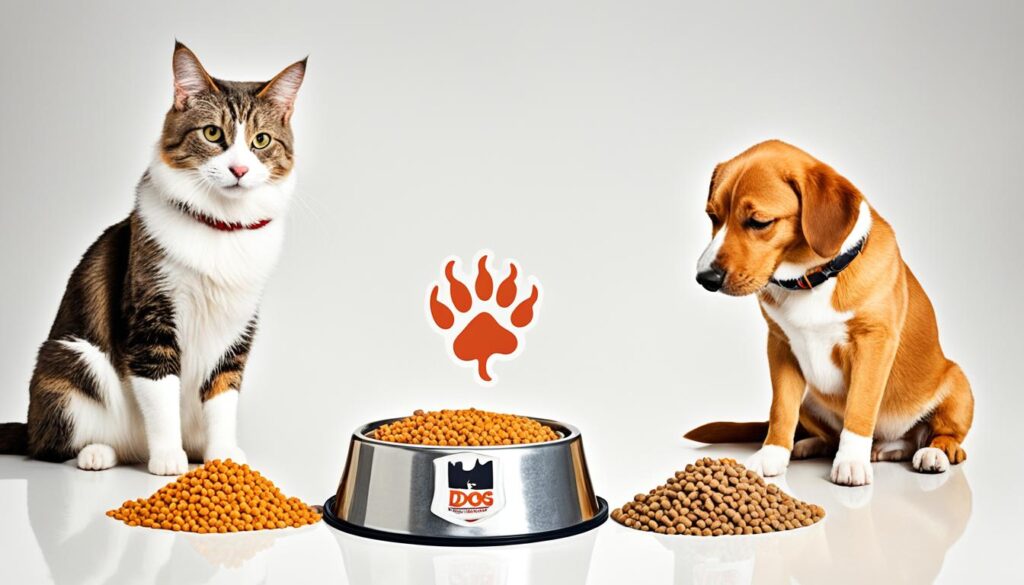
Feeding cat food to dogs on a regular basis can lead to nutritional deficiencies. Cats have specific nutrient requirements that are met by cat food but may be insufficient for dogs. Dogs require a more varied diet that includes proteins, fats, and complex carbohydrates from grains, fruits, and vegetables. Cat food does not provide the complete nutritional profile that dogs need, leading to imbalances and deficiencies.
It’s important to feed dogs a well-balanced dog food that meets their specific nutritional needs and consult with a veterinarian for dietary recommendations. A veterinarian can assess a dog’s health condition, age, breed, activity level, and other factors to determine the appropriate diet. They may recommend commercial dog food that is formulated to meet all of a dog’s nutritional requirements. This ensures that a dog receives the essential vitamins, minerals, and nutrients necessary for their overall health and well-being.
Incorporating a variety of nutrient-rich foods into a dog’s diet can help prevent nutritional deficiencies. Along with commercial dog food, fresh fruits, vegetables, and lean proteins can be included in a dog’s meals. It’s important to avoid feeding dogs excessive amounts of table scraps, as these can contribute to imbalances in their diet. Providing a well-rounded and balanced diet is crucial for a dog’s long-term health.
Nutritional Comparison of Cat Food and Dog Food
| Nutrient | Cat Food | Dog Food |
|---|---|---|
| Protein | High | Varies (based on dog’s needs) |
| Fat | High | Varies (based on dog’s needs) |
| Carbohydrates | Low | Varies (based on dog’s needs) |
| Taurine | Essential for cats, not essential for dogs | Not essential |
| Added Nutrients | Formulated for cats | Formulated for dogs |
| Vitamins and Minerals | Formulated for cats | Formulated for dogs |
Conclusion
Feeding a dog small amounts of cat food occasionally or as a treat may not pose significant health risks. However, it’s crucial to consider the individual dog’s health needs, including any underlying health conditions or sensitivities, before feeding them cat food. For dogs with sensitive stomachs, kidney or liver disease, or a predisposition to pancreatitis, cat food can cause gastrointestinal upset and worsen their health. It’s always best to consult with a veterinarian to determine the appropriate diet for a dog and prioritize their nutritional needs for optimal health and well-being.
FAQ
Can a dog die from eating cat food?
What is the difference between dog food and cat food?
Is it safe for a dog to eat cat food?
When is cat food safe for dogs?
When is cat food harmful for dogs?
Should I consult my vet about my dog’s nutritional needs?
What are the potential gastrointestinal consequences of a dog eating cat food?
Can eating cat food cause inflammation and organ damage in dogs?
What are the potential symptoms of abdominal pain and intestinal discomfort in dogs that eat cat food?
Can a dog experience nutritional deficiencies from eating cat food?
References
| International Cat Association (TICA) | https://www.tica.org/ |
| The Cat Fanciers’ Association (CFA) | https://cfa.org/ |
| World Cat Federation (WCF) | https://www.wcf-online.de/ |
| Fédération Internationale Féline (FIFe) | https://www.fifeweb.org/ |

